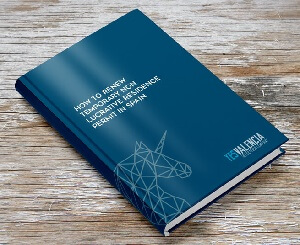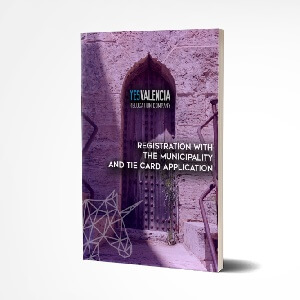 Spain provides free state healthcare to its residents, paid partly by social security payments that are deducted from their wages.
Spain provides free state healthcare to its residents, paid partly by social security payments that are deducted from their wages.
The healthcare system in Spain is among the world’s best healthcare services with no upfront expenditure from patients other than paying a proportion of prescription costs. About 10% of Spain’s GDP is spent on healthcare, and it is ranked 6th in the European Union (EU) with four doctors for every 1,000 people. A survey in 2012 by World Health Organization revealed that the women of Spain outlive women of other nationalities, indicating that the country must be doing something right.
Public and Private Healthcare in Spain
Like other countries, Spain also consists of public and private healthcare with a few hospitals offering both private and state health services. Private health insurance is not essential to get medical treatment in Spain, however, and it offers patients faster treatment for non-emergency procedures.
State Healthcare in Spain
State healthcare is free for any person working or living in Spain, though in some Spanish islands, residents may have to travel a long distance to find a public healthcare provider.
The following are the conditions a person must fulfil to be entitled to free state healthcare:
- Resident of Spain and pays social security contributions
- Native of Spain and receiving certain state benefits
- A child resident under 18 in Spain
- A pregnant woman who is a resident in Spain
- A student under the age of 26 and studying in Spain
- Paying a visit to Spain and have an EHIC card
- A state pensioner
If any person does not fulfil the above conditions, then they must organize private healthcare.
The healthcare system in Spain is decentralized i.e. each region of Spain is allocated a health budget by the central government which they spend at their will. Thus, every resident must check the obligations in their area for healthcare services.
Private Healthcare in Spain
If a resident is not paying the social security contributions, then they must sign up for private health insurance or pay the full amount of their medical bills.
Registering for Spain’s State Healthcare
Firstly, the resident must register with social security in Spain that has offices throughout the country to obtain a social security number. For this purpose, residents need to show their passport or ID card, residency certificate, and a filled application form. Also, they must have registered their details at their town hall.
Once registered with the social security, a social security number as well as a certificate is given, stating that the person is entitled to medical help. The certificate along with the passport and NIE number (foreigner’s identity number) needs to be taken to a healthcare service, where the person can register with a doctor and fill out the application for a health card. The health card either is delivered by post or has to be picked up personally.
European Health Insurance Card (EHIC)
If a person is on a holiday or other temporary visit to Spain and has an EHIC issued by an EU member state, they can use that card to avail the services of healthcare in Spain. Also, students who are studying in Spain as part of a course based in their home country are entitled to the Spanish national health system.
The EHIC can be used to get any medical treatment required at a reduced cost. It includes special or routine treatment for a new or ongoing condition, which cannot be waited for until the person reaches home.
However, EHIC does not provide access to private healthcare. Furthermore, an individual cannot use the EHIC if they are visiting Spain specifically to get medical treatment or for delivery purposes.
Health Agreements
Spain has bilateral health agreements with a few countries, including Andorra, China, Peru, Ecuador, Brazil and Chile, which enables citizens from these countries to receive free emergency medical treatment on their short visits to Spain. Everyone else needs to opt for private health insurance.
Visiting a Doctor in Spain
According to the Spanish medical system, a patient gets primary health care via a health center. The health center consists of around six doctors who might change on every visit unless the patient has an ongoing treatment with a certain doctor, in which case he can make an appointment with the same doctor in advance.
Doctors offer both private and public healthcare. There may be separate timings of consultation and surgery for private and state patients. Usually, to see a doctor, an appointment needs to be made beforehand, although some doctors may see patients on a first-come-first-serve basis. If a patient wishes to change their doctor, it can easily be done by re-registering.
Visiting a Specialist in Spain
If a patient needs to consult a specialist in Spain, they must first be recommended by a family doctor. If the patient has private insurance, he can see the specialist much faster as compared to the one registered with state healthcare.
Visiting a Dentist in Spain
The state healthcare in Spain does not cover dental treatment unless there is an emergency case. Individuals are required to either pay for their dental treatment or use their private insurance.
Pregnancy and Birth in Spain
Spain’s private and public sectors lay great emphasis on the care of a pregnant woman. Pregnant women have a lot of medical contact with an initial appointment with a midwife or doctor to confirm the pregnancy and hospital scans and regular checkups throughout the pregnancy.
Hospitals
In the case of any emergency, a person must rush to a nearby hospital. Otherwise for any other hospital treatment, an individual requires a referral from a doctor.
There are public hospitals, private hospitals, and hospitals that offer both private and state healthcare services. Only public hospitals provide free treatment to their patients.
When visiting a hospital, the patient is required to show their social security card or proof of private insurance. When discharged from a hospital, one must carry their hospital medical report to the pharmacy to get medicines because hospitals in Spain do not issue prescriptions.
Pharmacies in Spain
A pharmacy in Spain is a building with a large green cross sign outside. Registered pharmacies can also provide health consultations and guidance on health matters.
Pharmacies are usually open from Monday to Friday between 9:30 a.m. and 2:00 p.m. and 5:00 p.m. and 9:30 p.m. and on Saturday between 9:30 a.m. and 2:00 p.m. Importantly, there is a notice usually on the window or door with details of the nearby 24-hour pharmacy.
When buying medicines at the pharmacy, a person needs to pay a certain amount of the total cost of the medicine, which is non-refundable. The percentage he has to pay depends on his income and whether he is of working age or is a retired citizen.
Emergency Contact
In the case of an emergency, a person can dial 112 free of cost from any mobile phone or landline. For an ambulance call 061. An emergency dentist is usually available at your closest hospital.




8 Responses
Dear Madam, Sir
I’m settling in Valencia and living in Casa Caridad at the moment. I would like to obtain NIE card. Please advise on how to go about it.
I kindly thank you for you answer in advance.
Kindest
Taya Portman
Have you had look at this blog post?
Getting NIE in Valencia
I hope it does help!
Cheers 🙂
Hi, I am planning to move to Spain to live from the U.K., with my daughter who is12. I will not be working to start with. Am I correct in thinking that I need to obtain private health insurance but that my daughter will be entitled to state health care?
Thanks for your help 🙂
Hi Suze!
Yes, in Spain access to healthcare by children and pregnant women is protected by law.
Hi, i am a non-european student who is currently studying in Sabadell, Barcelona. I am also under 26 so does that mean i am entitled for the publich healthcare? And public healthcare can verified to extend my Nie? Thank you very much
If you are non-european you are not covered by public healthcare unless it is a specified differently in the bilateral agreement (if there is one) with the country you are the citizen of.
I have held an NIE, A4 size, green colour which states I have residentia.
I am 78 years of age and intend to settle down in Valencia.
I own a property, pay taxes on that am I am registered with the local council.
From what I can see I do not believe I qualify for the Free Medical assistance.
Would like some help here to clarify my position please.
If you have not contributed with social security payments in Spain as employee or self-employed, you will not automatically qualify for free health care in Spain.
As an EU citizen most likely you qualify for state health care in the country of origin or residency, and you can “export” this right to Spain to access free health care. You should request the standard form for social security rights from your country (it is called S1 form – the Certificate of entitlement to healthcare if you don’t live in the country where you are insured) and register it here with the INSS – Instituto Nacional de Seguridad Social in Spain and obtain the SIP card afterwards.
While you are in process, you can access free health care in Spain with your EHIC card.
If you are not covered in the country of origin, after being a legal resident in Spain for a year, you can join the public health care system by signing Convenio Especial (every province has got their own agreements, so it may vary depending on where in Spain you are) and pay monthly premium which currently is 157 euros a month for residents over 65.
Exceptionally, the Spanish authorities can include a person under public coverage (by applying the universal right to healthcare), if the person is in need – this right mostly ois granted for undocumented immigrants with no financial means, minors etc.
I hope this helps!